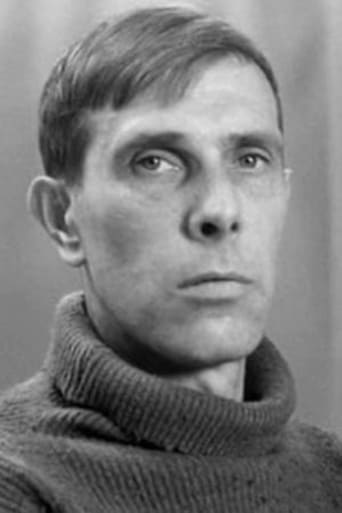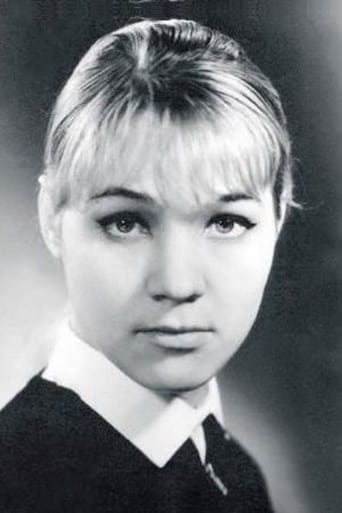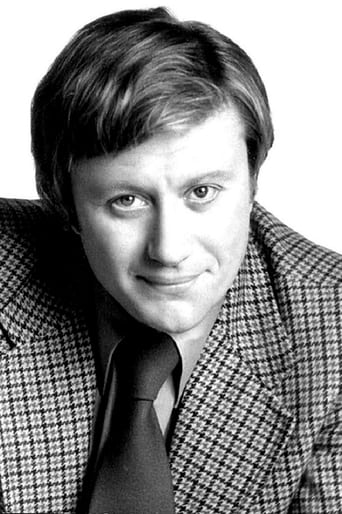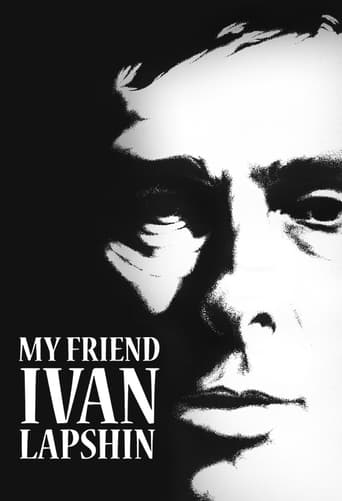
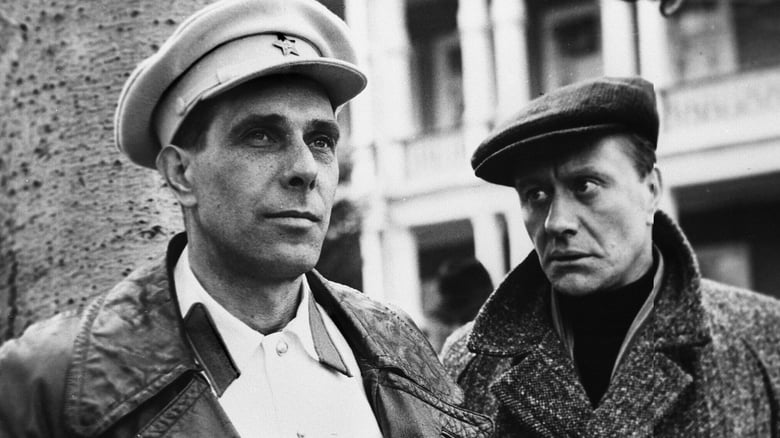
My Friend Ivan Lapshin (1987)
Russian provincial town in the middle of the 1930s Stalin's Great Purge. Ivan Lapshin, the head of the local police, does what he has to do. And he does it well.
Watch Trailer
Cast


Reviews
Fantastic!
best movie i've ever seen.
I like movies that are aware of what they are selling... without [any] greater aspirations than to make people laugh and that's it.
There's no way I can possibly love it entirely but I just think its ridiculously bad, but enjoyable at the same time.
Great cinematography, great directing, great acting. But this is not what makes a film great because they are mere ingredients. What makes this movie great is the humanity of its characters. It does not matter how good or bad is the system. Honest souls will always have something true to tell you about, to show you that even in the middle of the winter, the cold, the night, the lack of plenty there are human dramas involving all that humans can do. Love, crime, compassion, friendship, assistance... Not like a solemn hymn to joy of life, but as a simple story about some lives that are touched by others' and can touch the others' in return. Simply, humanly. Six people living in a flat show us, among other things, that what defines us is not the distance we put between us, but the closeness, the touch.
They often say that German excessively darkens Stalin era. In reply I would mention that the movie was shot in my native city of Astrakhan in 1978 - on the 61st year of communist ruling. All those nightmare buildings are not stage constructions, those are buildings where people still live. All those freaks are not crowd scene actors - they are real population of the district close to Astrakhan jail. It would be very one-sided to bound the idea of the movies to critics of totalitarianism. For me it is one of the greatest attempts to answer question like -what makes people live? -why one can loose all the desires? -can you stand when everything around makes you vomit? The set of actors is great.
A recollection from a Russian childhood becomes, in director Alexei Gherman's memory, a rambling fantasia of events in a small provincial town during the 1930s. The film is virtually plot less but rich in incidental detail, and like any nostalgic memory is oblique and selective, and often shadowed with a profound sense of regret. Viewers unfamiliar with Russian habits and history may be hard pressed to follow the director's near-documentary recreation of local events (spiced with occasional arcane, Fellini-esquire symbolism). What passes for a plot is allowed to develop in an offhand, almost inconsequential manner: an awkward love triangle shared by the title character (a local secret policeman) with a traveling actress and a journalist friend; a manhunt for an elusive criminal, and so forth. It's as if the characters were too personal for Gherman to see them become bogged down in a simple romance or conventional police procedural drama.
Recently top 50 national critics (in Russian edition of Empire magazine) have named the top 100 best films in Russia/USSR history. Not many cinephils have argued about the 1st place, with Alexei German's "My Friend Ivan Lapshin" taking the top spot. Another two of his films also took their place in the rating ("Check-up on the Roads" - arguably the best Russian film about WWII, and "Khrustalyov, My Car!"). Shamefully not so famous outside Russia, Alexei German is certainly one of the brightest (and pretty much hated by soviet ideologists) directors in his homeland, sharing pantheon with the likes of Dziga Vertov, Sergey Eisenstein, Marlen Huciev, Iosif Kheifits, Andrey Tarkovsky and many more wonderful names. "My friend Ivan Lapshin" is not an easy film to watch. It's dark atmosphere of early Stalin years, one might call it soviet film noir. But in contrast to classical American noirs, "Lapshin" adds much more realistic tones; shot in black and white with hand cameras it sometimes looks like half-documentary, making it closer to french Nouvelle Vogue. Still, New Wave directors had so many poetry in their works, you can hardly find some in German's movies. German shows life as it is, without any adorns. In this sense, maybe Italian neorealism is the closest cinematographic example you can find when looking for comparisons. But still you can't find any exact compares because German creates cinematic structures out of time and any particular school. He doesn't follow any genres' principles and cinematic rules."Lapshin" concentrates on a very short period of life of police detective Ivan Lapshin. Plot story takes place in a small Russian provincial town, in the middle of the 1930ies, the beginning of the horrible era of Stalin's political repressions. The story is told by an adult man who was a boy at that time and who remembers Ivan Lapshin in the light of childhood's memories. You won't find any particular political message here, although film has been banned right after the end of shooting and German received many official warnings. It is very hard to distinguish the true meaning of the movie, because every single motive, every idea is hiding in communication between characters. Police investigation is just an external part of the script which softly covers existentialistic relations. Deep emotions are hiding in outwardly bleak and unfriendly world that we see on the screen. These people are just living their usual lives and are very mixed up. They seem to be lost in time and space, and simply don't understand that they are part of emotionless system that eats their souls, system that corrupts people's being - and camera catches this atmosphere without excess words, just like child's memories sometimes can't be described with them. But even so it can't destroy the very essence of a man. People are brave, and not because they act bravely, but because they are protecting human relations, don't let them roll into madness, which is hiding in every corner. It's a strange and beautiful film. Every single actor (even Andrey Mironov who was already on pick of his fame at the moment) played his career's best role. Just like "Berlin Alexanderplatz" helps to understand the existentialistic being of post-war Germans, "Lapshin" helps to understand the core of the strange Russian soul that suffered so much during the age of horror, of the people who got so many psychological traumas, but who fought for their right to live a normal life.


